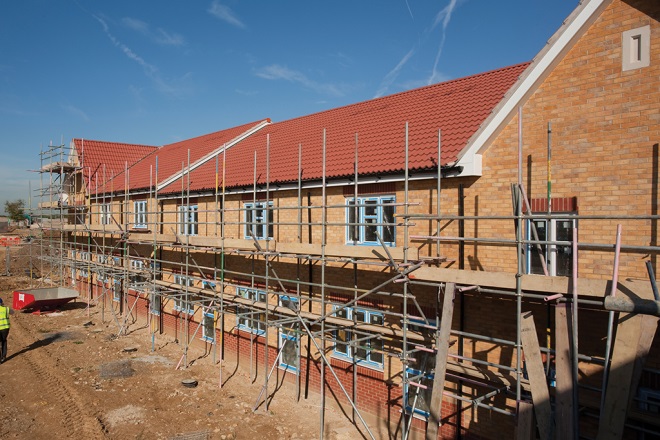Project starts on private housing projects jumped by 31 per cent from November 2024 to the end of January this year, according to Glenigan’s latest monthly Construction Index.
The construction intelligence provider also said there were 26 per cent more starts compared with the same period a year earlier. as housebuilders responded to increasing consumer confidence.
The Glenigan index measures all underlying projects with a total value of £100m or less, with all figures seasonally adjusted.
Glenigan economics director Allan Wilen said: “Momentum is shifting in the UK housing market… [and] housebuilders are responding to the turnaround in market conditions.
“After a sharp drop in transactions and prices, consumer confidence is returning, and mortgage applications surged in 2024 — indicating buyers are re-entering the market even as rates hold steady.”
The index found that social housing starts only increased by 1 per cent in the three months to February and were 26 per cent down on the same period a year earlier.
But it still provides a more optimistic outlook for the housing market than the latest S&P Global PMI data, which suggested that total housebuilding work fell for the fourth successive month in January.
Wilen said in January that upcoming changes to stamp duty are likely to distort housing market activity in the short term as buyers bring forward their purchases to avoid the additional tax.
“This will lead to a jump in transactions in the first three months of 2025 and a corresponding period of weakness in the following three to six months,” he added.
“This short-term volatility may mask an underlying strengthening in housing market activity, which is forecast to support a 13 per cent rise in private housing project starts this year.”
According to the Glenigan index, non-residential building starts grew 2 per cent in the three months to February, with industrial and health project starts up by 28 and 20 per cent respectively.
However, non-residential building starts were down by 20 per cent on the same period a year earlier, with the education and office sectors having each suffered an 18 per cent drop in starts.
Civil engineering project starts were down 4 per cent in the three-month period, but up 27 per cent from a year earlier. Utilities work decreased by 13 per cent on the previous period and 45 per cent from a year earlier.
Wilen said: “Many will be disappointed the year hasn’t got off to a stronger start, but I would suggest a degree of optimism is in order.
“We are starting to see some of the economic challenges gradually easing and this is being evidenced through pockets of growth in housing starts and a handful of other non-residential verticals.
“An improved economic outlook, combined with the promised government investment in large-scale infrastructure projects, will hopefully provide a much-needed shot in the arm to further boost performance.”

